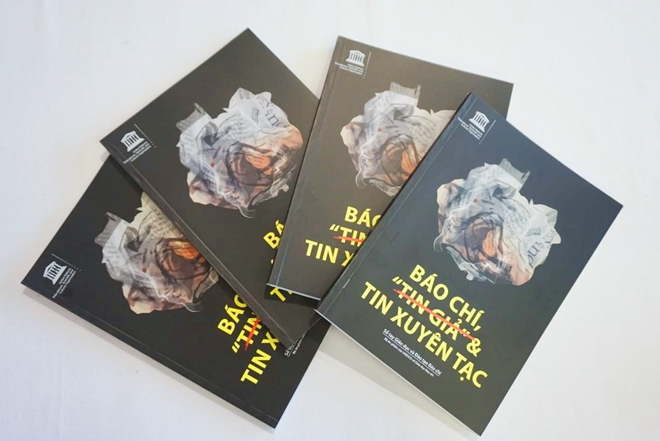UNESCO launches handbook on Journalism, Fake News and Disinformation at VIF 2019
- Vietnam Internet Forum 2019 – Digital For Good
- 10th anniversary of UNESCO recognition of Quan ho singing marked
Within the framework of the Vietnam Internet Forum 2019 (VIF 2019) which took place in Hanoi on March 20-21, UNESCO officially introduced the Vietnamese version of its handbook called "Journalism, 'Fake News' and Disinformation: A Handbook for Journalism Education and Training".
Information is the engine of development in the 20th and 21st century. This is fueled by independent news media that can act as a trusted guardian of public interest, and as an essential part of society’s checks and balances on power. But recent developments have put journalism under fire.
Political, technological, economic and social transformations are inexorably reshaping the communications landscape and raising many questions about the quality, impact and credibility of journalism.
 |
| The Vietnamese version of the handbook "Journalism, 'Fake News' and Disinformation: A Handbook for Journalism Education and Training". |
In addition, the information ecology is being contaminated by orchestrated campaigns to spread untruths via disinformation. This disruption is accompanied by manipulation of half-truths via mal-information, and by the unwitting sharing of misinformation.
This is the context in which UNESCO is publishing a model curriculum on a highly topical and significant subject. The new resource is aimed mainly at journalism educators and trainers, but is also of direct interest to practicing journalists and others who are interested in the quality of information in circulation.
Written by experts in the fight against disinformation, the handbook explores the very nature of journalism with modules on why trust matters; thinking critically about how digital technology and social platforms are conduits of the information disorder; fighting back against disinformation and misinformation through media and information literacy; fact-checking 101; social media verification and combatting online abuse.
To serve as a model curriculum, this handbook is designed to give journalism educators and trainers, along with students of journalism, a framework and lessons to help navigate the issues associated with ‘fake news’. This model curriculum is an essential addition to teaching syllabi for all journalism educators, as well as practicing journalists and editors who are interested in information, how we share it and how we use it.
Political parties, health professionals, businesspeople, scientists, election monitors, NGOs and others will also find useful insight in this publication. The idea is not to prescribe a curriculum, but to present knowledge resources for insight and adaptation as each reader sees fit.

